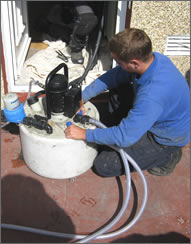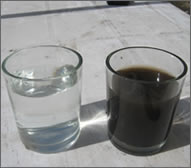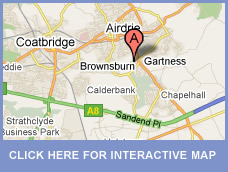
| HOME | CENTRAL HEATING | BOILERS | BATHROOMS | SHOWERS | POWERFLUSH | MAGNACLEAN | MAINTENANCE & REPAIRS | NEW BUILD | CONTACT |
POWERFLUSH
Signs that you might need a powerflush There are a number of signs to look for before deciding to go ahead with the powerflush process. These include cold areas on radiators, excessive noise from the boiler or the heating system pump, discoloured water when you bleed the radiators and the slow warming of the heating system. You might also notice the tap water getting cloudy, especially if there is a build up of limescale as well. It is also recommended that the powerflush process is carried out if you intend to connect a new boiler to an old heating system. This is because most new boilers are condensing boilers and any contaminants already present in the heating system can quickly damage the internal pipe work of the new boiler. The powerflushing process The chemicals used during a powerflush include a sludge crust breaker and remover to help get rid of rust and sludge, a descaler to break down limescale and a corrosion inhibitor to stop further rusting from occurring. The crust breaker and remover are acid-based so that they help to combat any rust present and any other debris, such as sand particles, that might have settled in the radiators, pipes and boiler. At the end of the process there is no acid left in the central heating system's water. Cost and time needed for a powerflush Conclusion |
Vincent Coyle
|
| Site Design by DM Web Solutions Ltd. TEL 0845 468 4660 | ©Vincent Coyle Plumbing & Heating Ltd |
 What is a Powerflush?
What is a Powerflush? The overall aim of a powerflush is to restore the full circulation of water around the central heating system, however, it can also eliminate noise from the boiler and the pump as well. This means that the entire system has to be flushed in order to get the best results. A professional plumber will connect a powerful high flow/low pressure pumping unit to the central heating system – either to the circulation pump in regular boiler systems or the pump head in combination boilers – and with the help of high strength cleansing chemicals will flush out anything in the system.
The overall aim of a powerflush is to restore the full circulation of water around the central heating system, however, it can also eliminate noise from the boiler and the pump as well. This means that the entire system has to be flushed in order to get the best results. A professional plumber will connect a powerful high flow/low pressure pumping unit to the central heating system – either to the circulation pump in regular boiler systems or the pump head in combination boilers – and with the help of high strength cleansing chemicals will flush out anything in the system. 

